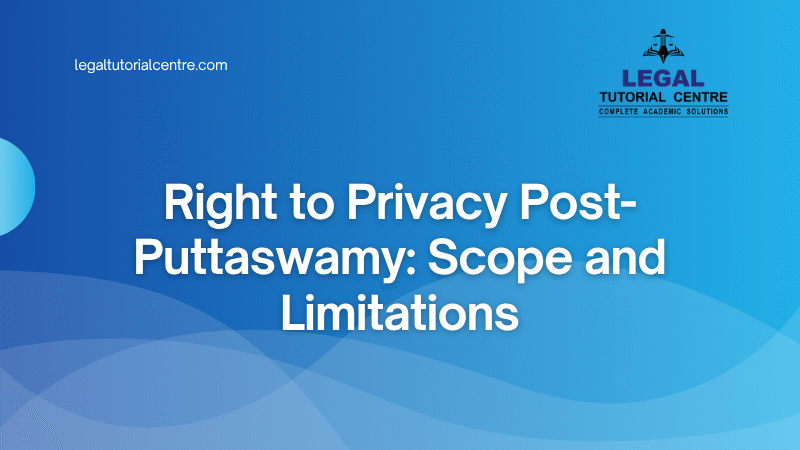1. Introduction
The Supreme Court in Justice K.S. Puttaswamy (2017) held that the Right to Privacy is a fundamental right under Article 21 of the Indian Constitution. This judgment expanded the scope of personal liberty and individual autonomy in India.
2. Scope of Right to Privacy
After the Puttaswamy judgment, the right to privacy covers:
Informational Privacy – Protection of personal data and digital identity
Bodily Privacy – Protection from physical violations or intrusion
Decisional Autonomy – Freedom in personal decisions (e.g., sexual orientation, reproductive rights)
Private Communications – Protection from illegal surveillance
3. Limitations of the Right
The right is not absolute. Restrictions must satisfy the three-fold test:
1. Legality – Backed by law
2. Legitimate Aim – Serves public interest (e.g., security, public order)
3. Proportionality – Balanced and not excessive
4. Key Judgments After Puttaswamy
Navtej Johar (2018) – Decriminalized homosexuality
Joseph Shine (2018) – Decriminalized adultery
Common Cause (2018) – Recognized right to die with dignity
Anuradha Bhasin (2020) – Recognized internet access as a fundamental right
5. Challenges
Inadequate surveillance laws
Digital privacy threats (e.g., Pegasus spyware)
Weak enforcement of privacy rights in public and private sectors
6. Conclusion
The Puttaswamy verdict has strengthened personal liberty in India. However, stronger legal safeguards, especially in the digital realm, are essential to protect and implement the right to privacy effectively.


